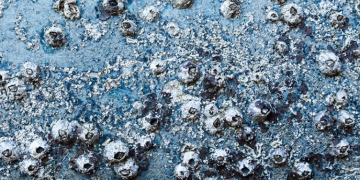The Danish Environmental Protection Agency (EPA) announced that has come down hard on sulphur polluters at sea. The first fines have now been imposed on two shipping companies, who have been using non compliant fuel causing illegal air pollution.
Specifically, after the Danish EPA issued a report concerning a foreign shipping company, which was sailing with fuel containing too much sulphur, the Danish police issued a fine for the company, that is one of the first fines, and so far the largest fine in Denmark for this type of case.
“By far the majority of shipping companies comply with the regulations for Danish waters, and therefore it’s very important we catch those that don’t. They must not be able to pollute the air with impunity, and therefore we’re extremely pleased that our police reports are now leading to fines,” said Sara Røpke, Head of Division at the Danish EPA.
In addition to the fine of DKK 375,000, a fine of DKK 30,000 has been issued to another foreign shipping company for a less serious violation of the sulphur regulations.
“Our recommendation to the police regarding the size of the fines focussed on ensuring that the fines were proportional with the nature of the violation, that they were commensurate with similar penalties in the environment field, and that they were comparable with fines issued in other countries for the same type of violation,” said Ms Røpke, and she added: “The size of fines isn’t cast in stone. In our opinion the fines should be higher for more serious or repeated violations”.
17 ships reported
Denmark regularly monitors the sulphur content of ship fuel by taking fuel oil samples from ships in Danish ports. Furthermore, sulphur emissions by shipping are monitored from the air using a ‘sniffer’ installed underneath the Great Belt Bridge. The ‘sniffer’ can ‘smell’ if too much sulphur is being emitted by a ship, and the Danish EPA will then receive an alarm and can ask the Danish Maritime Authority to take an oil sample when the ship reaches port. If the ship is on its way to a foreign port, the Danish EPA will advise the relevant authorities abroad.
However, with regard to the DKK 375,000 fine, the Danish EPA received an anonymous tip-off.
In order to strengthen supervision of the sulphur regulations even more, in the last six months of 2017 the Danish EPA will commence mobile monitoring of ships’ sulphur emissions in Danish waters. The task is currently out to EU tender.
“Sulphur is harmful to the environment and to human health, and since the new regulations on the sulphur content in fuel entered into force on 1 January 2015, I’m happy to say that the sulphur content in the air over Denmark has more than halved. We must make sure this continues through effective control and by coming down hard on shipping companies which don’t comply with the rules,” said Ms Røpke.
The Danish EPA has reported 14 cases to the police since the stricter limit value for sulphur content in marine fuels entered into force in the Baltic Sea and the North Sea on 1 January 2015. Three further violations have just been reported to the police, bringing the total up to 17.
The Danish EPA has also just launched a project to enhance control of the sulphur content in the fuel delivered to ships in Denmark.
Facts



























































